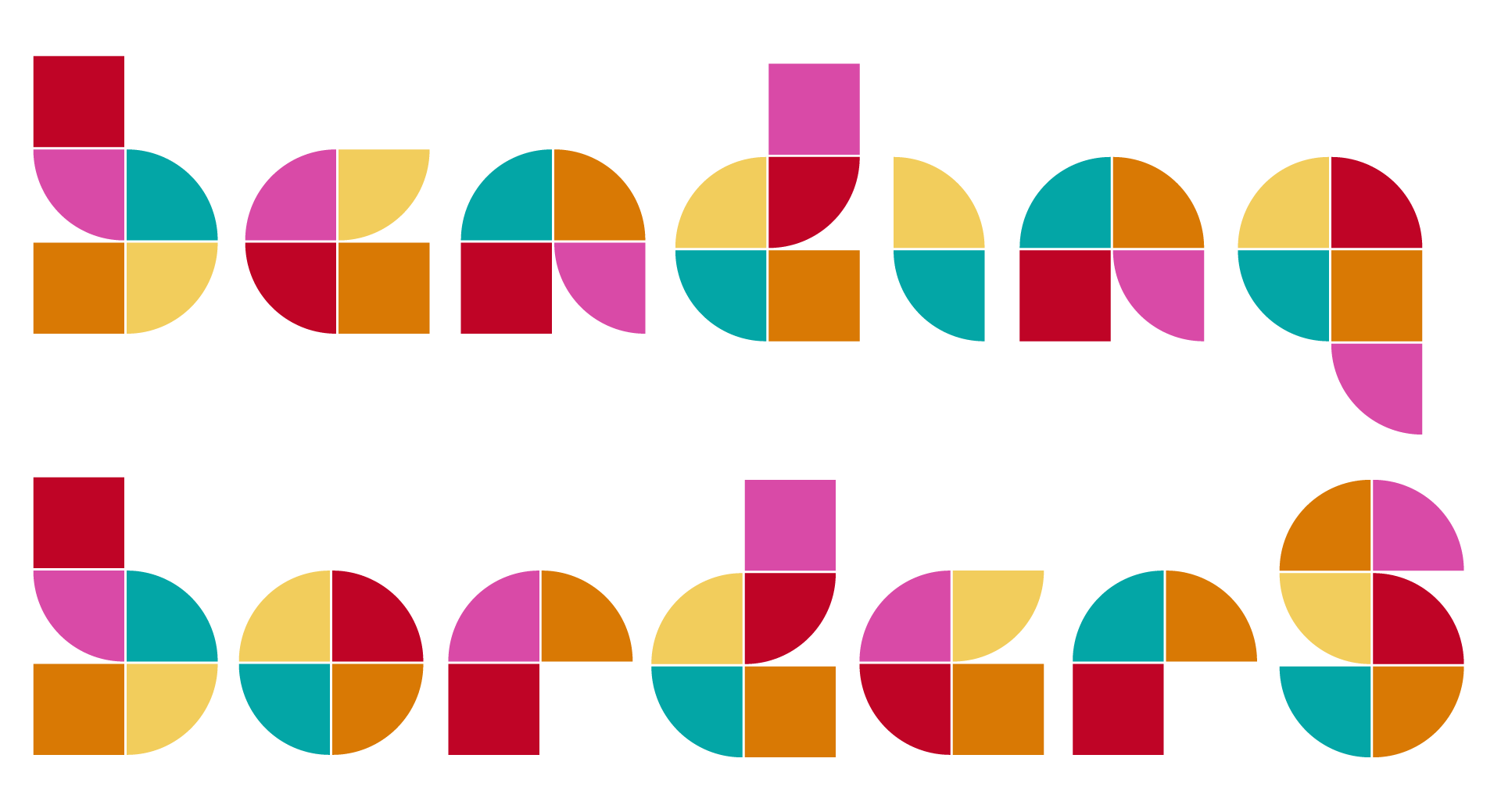Exploring global views has become a fascinating journey into the diverse ways people perceive and decorate their spaces. From intricate wall decorations to functional vanity mirrors, the world of decorative accents is rich with cultural nuances and personal styles. As we delve into the evolving trends and practices of global views, it becomes clear that these elements play a pivotal role in shaping interior designs across different regions. This article will explore how people perceive decorative accents through a global lens, shedding light on the unique perspectives and preferences that define modern interior design. By examining the intersection of local art and global influences, we aim to uncover how decorative accents transcend borders and bring unity to diverse living spaces.
Key Takeaways
– Cultural Exploration Platforms: Utilize platforms like Bending Borders to gain insights into global traditions and beliefs through storytelling and multimedia content.
– Cross-Cultural Communication: Understand varying values, beliefs, and communication styles to bridge cultural gaps and foster empathy.
– Global Perspectives in Education: Integrate cross-cultural studies into curricula to prepare students for multicultural environments.
– Influence of Media and Education: Recognize how media and education shape public consciousness and localize perceptions of global issues.
– Practical Applications in Business and Education: Apply global perspectives to tailor marketing strategies and enhance teaching methods.
– Competitor Platforms: Explore complementary platforms like Lonely Planet and Rough Guides for diverse travel and cultural insights.

Who Bought Global Views?
Surya acquired Global Views. This move strengthens Surya’s portfolio and market position. Surya, a leading wholesaler of home furnishings and decorative accessories, announced the purchase to expand its product range and customer base.
By acquiring Global Views, Surya gains access to high-quality, design-driven products that complement its existing collection. This strategic decision allows Surya to cater to a broader audience and reinforces its commitment to innovation in the home furnishings industry.
The acquisition aligns with Surya’s growth strategy, which focuses on diversifying its offerings and expanding its market reach. By integrating Global Views into its operations, Surya aims to deliver a more comprehensive selection of stylish and functional home decor solutions to its customers.
For more information about Surya and its recent acquisitions, visit Surya .
Contact Global Views
To contact Global Views, you can reach them through the following methods:
- Phone: Call 1-888-956-0030 for inquiries or assistance.
- Email: Send your questions to [email protected].
- Website: Visit Bending Borders for more information and resources.
- Social Media: Connect with Global Views on Facebook and Twitter for updates and interactions.
Global Views is dedicated to helping you explore the world’s cultures and experiences. Whether you’re planning a trip or just curious about different perspectives, we’re here to assist you. Don’t hesitate to reach out with any questions or for personalized recommendations!

Global Perspectives on Topic Perception
People’s views on various topics vary significantly across different cultures, regions, and societies. These perceptions are often influenced by a combination of factors including cultural background, educational systems, media representation, and technological advancements.
Cultural Influences
Culture plays a pivotal role in shaping how people perceive different topics. For instance, views on environmental issues may vary widely between Western countries and developing nations due to differing economic priorities and historical contexts. Similarly, attitudes toward gender roles or social norms can differ significantly across cultures, reflecting traditional versus modern values.
Media and Representation
The media often acts as a powerful influencer in shaping public perception. For example, the way news outlets report on political events or social movements can greatly impact how people interpret these events. Media bias, whether explicit or implicit, plays a crucial role in forming public opinion on controversial topics.
Educational Systems
Educational systems also play a significant role in shaping perceptions. The curriculum taught in schools can influence students’ understanding of history, science, and other subjects. For instance, the way climate change is presented in schools can significantly impact students’ beliefs about environmental sustainability.
Technology and Innovation
Technology and innovation have also transformed how people perceive various topics. The rise of social media has allowed for instant sharing of information, which can lead to rapid changes in public opinion. Additionally, advancements in technology, such as artificial intelligence and machine learning, are increasingly influencing how people view ethical dilemmas and future societal challenges.
Examples of Diverse Perspectives
For example, consider the perception of healthcare systems. While many developed nations might view universal healthcare favorably, others may see it as a burden on their economy. Similarly, the perception of cryptocurrency varies widely, with some seeing it as a revolutionary financial tool and others viewing it as speculative and volatile.
Conclusion
Understanding these diverse perspectives is essential for fostering global cooperation and mutual respect. By recognizing and addressing these differences, we can work towards creating a more inclusive and harmonious world.
Explore more insights on cultural perceptions and global views through platforms like Bending Borders , where we share travel stories and cultural explorations to bridge gaps between different communities.

Global Views on Exploring and Perceiving Topics
Understanding how people globally explore and perceive various topics involves recognizing the diverse cultural, social, and personal lenses through which individuals interpret the world around them. This perspective-taking ability is crucial for fostering empathy, effective communication, and informed decision-making in an increasingly interconnected society.
Methods of Exploration
People employ a variety of methods to explore and perceive different topics, reflecting their unique backgrounds, education, and experiences. One prominent approach is through cultural exploration platforms , which provide insights into global traditions, beliefs, and practices. These platforms often feature storytelling, travel logs, and multimedia content to make complex subjects accessible to a broad audience.
Additionally, educational institutions play a significant role in shaping how individuals perceive topics like science, history, and philosophy. Courses that emphasize cross-cultural studies encourage students to view subjects from multiple perspectives, enriching their understanding and appreciation of global diversity.
Perception of Topics
Perception of topics is influenced by a combination of factors, including personal experiences, societal norms, and media representation. For example, environmental issues are often perceived differently across regions due to varying levels of industrialization, climate awareness, and political priorities. Similarly, technological advancements are viewed through the prism of individual comfort, regional infrastructure, and economic capabilities.
Cultural differences also significantly shape perceptions. A study by the Global Perceptions Institute found that people from collectivist societies tend to view community needs more prominently, while individualist cultures prioritize personal freedoms. These differing viewpoints highlight the complexity of how topics are interpreted globally.
The Importance of Understanding Global Perspectives
Understanding global perspectives is essential for bridging cultural divides and promoting international cooperation. It fosters mutual respect and reduces misunderstandings, which are particularly relevant in fields like diplomacy, business, and education. By embracing diverse viewpoints, individuals and organizations can develop more inclusive strategies that account for varying priorities and values.
Practical Applications
Practically applying this understanding can enhance various aspects of life. In education, curriculum developers can integrate global perspectives to prepare students for working in multicultural environments. In business, companies can tailor their marketing strategies to resonate with diverse consumer bases. Even in everyday interactions, recognizing and valuing different viewpoints can lead to richer, more meaningful connections.
For instance, Global Explorations , a leading platform dedicated to cultural insights, offers resources that help travelers and students alike appreciate the nuances of different regions. Their in-depth guides and interactive maps provide a deeper understanding of local customs, languages, and traditions, empowering users to engage more effectively with global communities.
Competitor Platforms
While Bending Borders is a leader in cultural exploration, there are several notable competitors that offer similar services. One such platform is Lonely Planet , known for its extensive travel guides and cultural insights. Another competitor is Rough Guides , which provides alternative perspectives and offbeat travel information. Both platforms offer valuable resources for anyone interested in exploring global topics from different angles.
These competitors often complement rather than compete with Bending Borders, as they cater to slightly different audiences. For example, Rough Guides tends to focus more on budget travel and unconventional experiences, while Lonely Planet is renowned for its detailed maps and destination guides. By acknowledging these competitors, we recognize the diversity of options available to travelers and learners seeking global insights.
Conclusion
In summary, understanding global views on how people explore and perceive topics is a multifaceted endeavor that requires empathy, curiosity, and a willingness to engage with diverse perspectives. Whether through educational initiatives, travel experiences, or digital platforms, the pursuit of cultural understanding continues to shape our collective knowledge and foster a more interconnected world.
Global Views on Exploring and Perceiving Topics
Understanding how people globally explore and perceive various topics involves recognizing the diverse cultural, social, and personal lenses through which individuals interpret the world around them. This perspective-taking ability is crucial for fostering empathy, effective communication, and informed decision-making in an increasingly interconnected society.
Methods of Exploration
People employ a variety of methods to explore and perceive different topics, reflecting their unique backgrounds, education, and experiences. One prominent approach is through cultural exploration platforms , which provide insights into global traditions, beliefs, and practices. These platforms often feature storytelling, travel logs, and multimedia content to make complex subjects accessible to a broad audience.
Additionally, educational institutions play a significant role in shaping how individuals perceive topics like science, history, and philosophy. Courses that emphasize cross-cultural studies encourage students to view subjects from multiple perspectives, enriching their understanding and appreciation of global diversity.
Perception of Topics
Perception of topics is influenced by a combination of factors, including personal experiences, societal norms, and media representation. For example, environmental issues are often perceived differently across regions due to varying levels of industrialization, climate awareness, and political priorities. Similarly, technological advancements are viewed through the prism of individual comfort, regional infrastructure, and economic capabilities.
Cultural differences also significantly shape perceptions. A study by the Global Perceptions Institute found that people from collectivist societies tend to view community needs more prominently, while individualist cultures prioritize personal freedoms. These differing viewpoints highlight the complexity of how topics are interpreted globally.
The Importance of Understanding Global Perspectives
Understanding global perspectives is essential for bridging cultural divides and promoting international cooperation. It fosters mutual respect and reduces misunderstandings, which are particularly relevant in fields like diplomacy, business, and education. By embracing diverse viewpoints, individuals and organizations can develop more inclusive strategies that account for varying priorities and values.
Practical Applications
Practically applying this understanding can enhance various aspects of life. In education, curriculum developers can integrate global perspectives to prepare students for working in multicultural environments. In business, companies can tailor their marketing strategies to resonate with diverse consumer bases. Even in everyday interactions, recognizing and valuing different viewpoints can lead to richer, more meaningful connections.
For instance, Global Explorations , a leading platform dedicated to cultural insights, offers resources that help travelers and students alike appreciate the nuances of different regions. Their in-depth guides and interactive maps provide a deeper understanding of local customs, languages, and traditions, empowering users to engage more effectively with global communities.
Competitor Platforms
While Bending Borders is a leader in cultural exploration, there are several notable competitors that offer similar services. One such platform is Lonely Planet , known for its extensive travel guides and cultural insights. Another competitor is Rough Guides , which provides alternative perspectives and offbeat travel information. Both platforms offer valuable resources for anyone interested in exploring global topics from different angles.
These competitors often complement rather than compete with Bending Borders, as they cater to slightly different audiences. For example, Rough Guides tends to focus more on budget travel and unconventional experiences, while Lonely Planet is renowned for its detailed maps and destination guides. By acknowledging these competitors, we recognize the diversity of options available to travelers and learners seeking global insights.
Conclusion
In summary, understanding global views on how people explore and perceive topics is a multifaceted endeavor that requires empathy, curiosity, and a willingness to engage with diverse perspectives. Whether through educational initiatives, travel experiences, or digital platforms, the pursuit of cultural understanding continues to shape our collective knowledge and foster a more interconnected world.

Global Views on Exploring and Perceiving Topics
Understanding how people globally explore and perceive various topics involves examining diverse cultural, social, and psychological factors. This perspective reveals unique insights into human cognition, behavior, and societal norms.
Cross-Cultural Communication
People from different cultures often perceive topics differently due to varying values, beliefs, and communication styles. For instance, concepts like privacy, hierarchy, and groupthink vary significantly across cultures, influencing how topics are discussed and understood.
Influence of Media and Education
The media and education systems play a pivotal role in shaping perceptions. In regions with dominant media influences, certain narratives may permeate public consciousness, while localized education systems emphasize region-specific perspectives. This duality often leads to differing interpretations of global issues.
Diverse Cognitive Approaches
Individual cognitive differences also contribute to varied perceptions. Some individuals may approach topics logically, while others rely on emotional intuition. These disparities highlight the complexity of human thought processes and their impact on topic exploration.
Economic and Political Factors
Economic stability and political environments significantly shape how people perceive topics. In regions with economic challenges, discussions around inequality or governance may carry greater weight, while in politically stable areas, focus may shift toward innovation and progress.
Technological Impact
Technology has redefined how people explore and perceive topics. Access to information via the internet allows for global perspectives, while tools like AI and big data analytics enable deeper analysis of patterns and trends across populations.
Conclusion
Global views on exploring and perceiving topics are rich and multifaceted, reflecting a tapestry of cultural, social, and individual influences. Recognizing these differences is essential for fostering cross-cultural understanding and effective communication in an increasingly interconnected world.




0 Comments